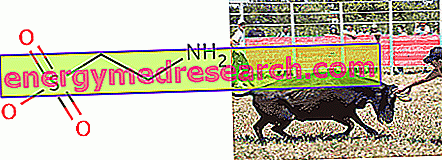Generality
The meningococcus C vaccine is a non-compulsory vaccination that guarantees immunity against meningitis caused by the meningococcus C bacterium.
Administered intramuscularly through 1-2 dosages depending on the age of the recipient, the meningococcus C vaccine is an effective and well tolerated practice; in fact, it is rare that it fails or is responsible for side effects.
What is the meningococcus C vaccine?

For those who live in Italy, there are various formulations of meningococcus C vaccine; among these formulations, the most well-known and administrable for a wide segment of the population are Meningitec and Menjugate, both of which fall on the list of so-called conjugated vaccines .
Brief review of what a conjugate vaccine is
Conjugated vaccines are particular vaccines which, in addition to containing a polysaccharide fraction of the infectious agent from which they must protect, also possess a protein component - called carrier protein - which serves to improve the effectiveness of the preparations, at the time of their use.
This composition guarantees conjugated vaccines the possibility of generating high affinity antibodies (ie very efficient) and the so-called immunological memory (which allows the body to "remember" in the long term how to defend itself against the infective agent from which the vaccine must protect) .
What are meningococcal C meningitis and meningitis?
The term meningitis identifies an inflammatory process affecting the meninges ; in number 3, the meninges are the membranes that cover and protect the brain and the spinal cord, that is the two main components of the central nervous system of the human being.
The possible causes of meningitis are numerous; in fact, to cause inflammation of the meninges can be infectious agents, such as viruses, bacteria or fungi, physical injuries involving the central nervous system, some types of drugs, some brain tumors and certain systemic diseases.
Curiosity: what is meant by infectious meningitis?
In the medical field, meningitis due to an infectious agent - be it a virus, a bacterium or a fungus - is called infective meningitis .
Infectious meningitis is, by far, the most common and clinically interesting episodes of inflammation of the meninges.
MENINGOCOCCUS MENINGITIS C
Meningococcal C meningitis is one of the most important examples of bacterial meningitis ; bacterial meningitis are very feared conditions and constitute a serious danger for human beings, as they can give rise to serious and sometimes deadly consequences (eg, septicemia, encephalitis and / or myelitis).

According to the most important statistical research, meningococcal C meningitis is one of the most common forms of bacterial meningitis in Europe.
Curiosity: which are the subtypes of Neisseria meningitidis most important for human beings?
According to the most recent studies, there are 13 subtypes (or serotypes) of Neisseria meningitidis ; of these subtypes, the most important for human beings, as they can cause serious diseases such as meningitis, are: meningococcus A, meningococcus B (see meningococcus B vaccine), the aforementioned meningococcus C, meningococcus W135 and the meningococcus Y.
Indications
The meningococcal C vaccine is a recommended practice for all those at risk; among the latter, include: newborns, children under the age of 5, immunosuppressed (eg: AIDS patients), carriers of chronic diseases that promote the onset of infections (eg: diabetics, liver patients etc. .) and all those who, for various reasons, must go to countries where meningococcal C meningitis is a widespread infection.
For obvious reasons, among those at risk, those who arouse the greatest interest and who represent the largest portion are infants and children.
Method of administration in children, adolescents and adults
The mode of administration of the meningococcal C vaccine is only one and consists of the so-called deep intramuscular injection .
Regarding the site of this injection, this varies according to the age of the subject subjected to vaccination; in fact, if for infants under 12 months, it consists of the anterolateral portion of the thigh, for children from 12 months upwards, for adolescents and adults it consists of the deltoid region of the shoulder .
Dosage in young and very young
In subjects of young age (infants and children), the administration of the two best-known formulations of the meningococcus C vaccine, namely Meningitec and Menjugate, varies according to age; in particular:
- For young subjects between the ages of 2 and 12 months, the administration of the aforementioned formulations involves two dosages, to be carried out at least two months apart, and a recall at the age of 5;
- For young subjects over the age of 12 months, the administration of the above formulations requires only one dosage, without any dosage.
Dosages in adolescents and adults
With regard to adolescents and adults, the administration of the "usual" two formulations of the meningococcus C vaccine involves a single dosage, without any recall, exactly like children over 12 months.
| Table. Summary of dosages of meningococcus C vaccine based on age groups. | |||
| Age range | Number of dosages | Time interval between one dosage and another | Recall? |
| 2-12 months | 2 | At least two months | Yes, generally at 5 years of age |
| 12 months, adolescence and adulthood | 1 | - | No |
Meningococcal C vaccine in adults: when is it recommended?
Doctors recommend the meningococcus C vaccine in adulthood, when:
- There is a state of immunodepression (ie a situation in which the immune defenses are weaker than normal);
- There is a disease, such as diabetes or thalassemia, which promotes the onset of infections;
- There is a desire or need to travel to a region of the world where meningococcal C meningitis is quite widespread (so there is a significant risk of contracting it, even from a healthy individual with an efficient immune system) .
Meningococcus C vaccine and mandatory in Italy
In Italy, on the basis of what the new law concerning mandatory vaccines states, the meningococcus C vaccine is not a mandatory practice, but only recommended .
With regards to this topic, it is useful to recall in full what the aforementioned law affirms, which came into force on 28 July 2017: “The following vaccinations are offered free of charge and actively by the Regions:
- Anti-meningococcal vaccination B
- Anti-meningococcal vaccination C
- Anti-pneumococcal vaccination
- Rotavirus vaccination
These vaccinations are offered by the Regions and the Autonomous Provinces, based on the indications of the vaccination calendar relative to the year of birth. Then:
- Those born in 2017 are offered free anti-meningococcal B, anti-meningococcal C, anti-pneumococcal and anti-rotavirus vaccinations
- Those born between 2012 and 2016 are offered free anti-meningococcal C and anti-pneumococcal vaccinations "
For more information on mandatory vaccines in children, readers are encouraged to consult this article.
Composition
Like any vaccine, the meningococcus C vaccine also contains a component called " active ", which in this case serves to guarantee immunity against meningitis caused by meningococcus C, and a component classified as " auxiliary ", which consists of the so-called excipients .
Active component: what does it contain?
The active component (or active ingredient) of the meningococcus C vaccine contains 2 conjugated elements, which are:
- The polysaccharide antigen of the meningococcal wall C and
- The CRM 197 protein of Corynebacterium diphtheriae .
With regard to these 2 elements, it is important to specify that:
- Both have undergone a treatment in the laboratory, such that they are in no way able to cause the infectious diseases corresponding to the pathogen to which they belong (meningitis, as regards meningococcus C, and diphtheria, as regards Corynebacterium diphtheriae ).
- The CRM 197 protein of Corynebacterium diphtheriae does not protect against diphtheria. To prevent the onset of the latter, another type of vaccine is needed (eg, hexavalent vaccine).
Auxiliary component: what are the excipients?
The excipients are substances that complete a pharmaceutical preparation, without having any therapeutic role.
In the most common formulations of the meningococcus C vaccine, the main excipients are:
- Aluminum hydroxide;
- Sodium chloride;
- Mannitol;
- Dibasic sodium phosphate;
- Water.
Remember that ...
The excipients present in the pharmacological preparations are not negligible, as they can cause allergic reactions.
operation
The meningococcus C vaccine protects against meningitis caused by meningococcus C, because, in the person to whom it is injected, it stimulates the immune system to produce antibodies against the aforementioned bacterial infectious agent (ie meningococcus C).
Adverse effects
The meningococcal C vaccine is well tolerated; however, it can happen that, in certain subjects, it gives rise to problems that can be qualified with the name of side effects or adverse effects .
Possible side effects of the meningococcus C vaccine include:
- Fever in the first 24 hours following the vaccine injection. Of little clinical relevance and of short duration, it represents the most common side effect of the meningococcus C vaccine;
- Redness, pain, swelling and / or hardening at the injection site. If they take place, these disorders generally occur within 48 from the realization of the vaccine;
- Irritability;
- Tiredness and / or drowsiness;
- Diarrhea and vomiting. They are more common in newborns;
- Headache;
- Dizziness;
- Joint and / or muscle pains;
- Sense of fainting and / or dizziness;
- Allergic reaction against one of the vaccine components. More than a side effect, it is a complication, which, fortunately, takes place very rarely.
In general, subjects with an allergy to the meningococcus C vaccine manifest this problematic with symptoms and characteristic signs, after a few tens of minutes from the time of injection.
| Table. The side effects of the meningococcus C vaccine, by the most common and the least common. | |
| Frequency | Adverse effects |
| Very common (1 person every 10) |
|
| Municipalities (from 1 person every 10 to 1 person every 100) |
|
| Uncommon (less than 1 person every 10, 000) |
|
Symptoms and signs of allergic reactions caused by the meningococcus C vaccine
An allergic reaction to the meningococcal C vaccine may result in symptoms and signs such as:
- Itchy rash of the skin;
- Shortness of breath and severe breathing difficulties;
- Swelling of the face;
- Swelling of the tongue.
Contraindications
In its most used versions, the meningococcus C vaccine has some contraindications; in fact, it is not suitable for:
- Individuals with an allergy to one of the vaccine components;
- Individuals with an ongoing infectious disease. This is a temporary ban, which ends at the time of recovery from the aforementioned infectious disease;
- Individuals with a febrile syndrome in place. This is also a temporary contraindication, which ends with the resolution of the fever.
Meningococcal C vaccine and pregnancy
Although further studies are needed, pregnancy does not seem to be a contraindication to the meningococcus C vaccine.
In any case, it is good practice for a pregnant woman willing to undergo the vaccine to ask her doctor's advice and the gynecologist who is treating her about her wishes.
Results
Studies conducted so far indicate that, in its most common formulations, the meningococcal C vaccine is significantly effective; in other words, it is able to protect from the bacterium in a more than satisfactory way.
What are the limits of the meningococcus C vaccine?
Due to the poor activity and functionality of the immune system, meningococcal C vaccine may be ineffective in immunosuppressed individuals (eg, people with AIDS, people taking immunosuppressive drugs, individuals undergoing chemotherapy, etc.).



